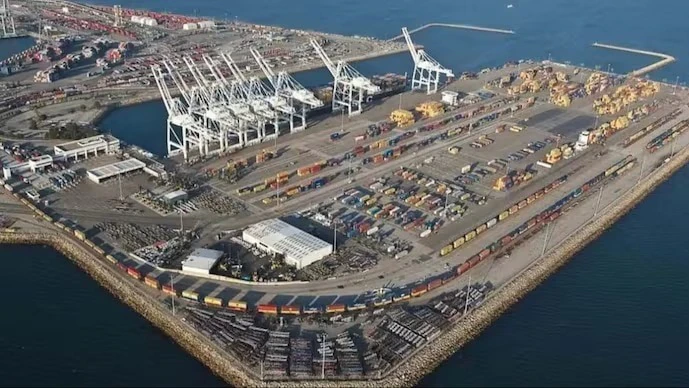India has secured a six-month U.S. sanctions waiver for the Chabahar Port in Iran. Discover how this move strengthens India’s diplomacy.

A Diplomatic Win for India
India’s foreign policy has always been about balance, and the recent U.S. sanctions waiver for the Chabahar Port is a shining example. This six-month exemption marks a significant diplomatic victory. It allows India to continue developing the port in Iran, despite ongoing U.S. sanctions on Tehran.
This move strengthens India’s position as a key regional player, connecting South Asia to Central Asia through trade and infrastructure. It’s also a reflection of India’s growing influence in global decision-making circles.
As noted in The New U.S.–India Defence Vision, cooperation between India and the U.S. has reached a historic level. This waiver adds another layer of trust to their complex but evolving relationship.
Why Chabahar Matters
The Chabahar Port sits on Iran’s southeastern coast, opening access to the Arabian Sea. For India, it’s not just a port — it’s a gateway to Afghanistan, Central Asia, and beyond, bypassing Pakistan.
For years, India has invested heavily in developing this port as part of its regional connectivity plan. It’s a lifeline for Indian trade and a symbol of friendship between India and Iran.
Reports from America112 highlight that the U.S. waiver recognizes Chabahar’s humanitarian and strategic importance. It helps deliver food, medicine, and other aid to Afghanistan — a nation still struggling after years of conflict.
The Power of Balanced Diplomacy
India’s ability to maintain friendly relations with both the U.S. and Iran shows the strength of its diplomatic vision. While Washington imposes sanctions on Tehran, it acknowledges New Delhi’s need for this vital corridor.
This balance reflects India’s growing global maturity. The country doesn’t pick sides — it chooses strategy, peace, and progress.
This approach echoes the spirit of A New Chapter in the Russia–Ukraine Standoff, where India has consistently supported peace and dialogue instead of confrontation.
A Step Toward Regional Stability
The Chabahar Port plays a bigger role than just trade. It supports regional stability. It connects countries and opens doors for economic growth in one of the world’s most tense regions.
Through this project, India helps build bridges where others build walls. It shows how infrastructure can become a tool of peace.
This vision aligns with India’s global image — a nation that promotes cooperation over conflict, and dialogue over division.
What the Waiver Means for the Future
This six-month exemption is not just about time — it’s about opportunity. It allows India to:
- Continue port construction and operations.
- Expand trade with landlocked countries like Afghanistan.
- Strengthen energy and transport partnerships in Central Asia.
- Showcase its diplomatic independence.
If the project continues smoothly, this could pave the way for a long-term waiver and even more global recognition of India’s diplomatic skills.
The Human Side of Strategy
Behind all the politics and policies, this waiver brings hope to real people. Farmers, traders, and local workers around the port will benefit from new economic activity. Families in Afghanistan will receive essential supplies through this route.
This is diplomacy that touches lives — not just headlines.
Conclusion: A Win Beyond Borders
India’s success in securing a U.S. sanctions waiver for the Chabahar Port is more than a policy move. It’s a message to the world that strategic diplomacy works best when guided by purpose and peace.
It proves that India can maintain friendships with different powers, build trust where tensions exist, and lead with vision.
As the world shifts, India continues to rise — not through force, but through balance, understanding, and heart.
For more insights on India’s global strategy and world affairs, visit Recital Blog and follow global updates on America112.

